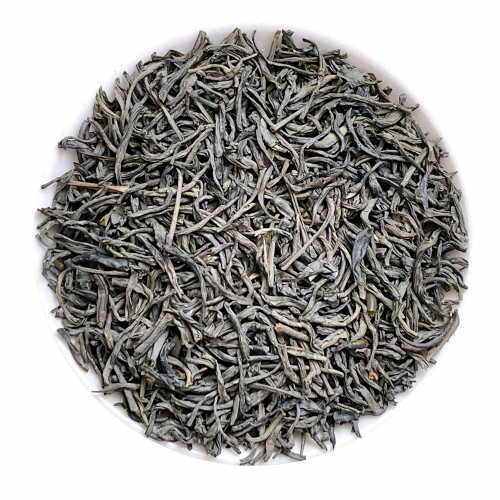Product Overview
Yunnan Xiao Guan Kang cha is a traditional handcrafted tea originating from Huize County in Zhaotong, Yunnan Province. It is made using high-mountain tea leaves and a distinctive "kang-style" drying process, where the tea is slowly roasted over wood-fired brick beds or stoves. This ancient method imparts a deep smoky aroma and a rich, layered flavor, giving the tea a unique identity rooted in the daily life and customs of the local people.
Situated in the northeastern highlands of Yunnan, Huize enjoys ideal natural conditions for tea cultivation—high altitude, large day-night temperature differences, and clean air. Local tea trees are often small- or medium-leaf varietals, some semi-wild, producing leaves that are thick, resilient, and rich in inner substances—perfect for slow processing and long-lasting brews.
After being handpicked (usually one bud with two or three leaves), the fresh leaves undergo traditional pan-firing to kill the green, followed by careful hand-rolling. Unlike modern industrial drying, Kang Tea is slowly roasted over wood stoves or fire-heated brick beds (“kang” in local dialect) for many hours. The tea absorbs the subtle fragrance of burning pine or oak, along with the warmth of smoke and wood. This traditional roasting is key to its characteristic aroma and durability.
Kang Tea has a rustic appearance—dark brown to black twisted leaves, somewhat coarse but naturally curled. When brewed, the tea yields a deep amber or reddish-orange liquor, clear and bright. The aroma is a captivating blend of wood smoke, toasted grains, and aged tea leaves. The taste is bold and full-bodied, with an initial hint of smoky bitterness, followed by a smooth, mellow finish and lingering sweetness. The tea is highly resistant to over-brewing and can be steeped or simmered many times without losing strength.
Kang Tea is more than just a beverage—it represents the warmth of hospitality, the resilience of mountain life, and the memory of smoke rising from family hearths. It is a tea steeped in culture, fire, and time. In every cup, one can taste not just the richness of Yunnan’s highlands but also the quiet simplicity and strength of rural tradition.
Brewing Guide: There are two popular methods of drinking Kang Tea. The first is steeping, where about 5 grams of tea is brewed in 250–300 ml of boiling water for 1–2 minutes in a teapot or gaiwan. This method allows the smoky fragrance and complexity to gradually unfold over multiple infusions. The second, more traditional way is boiling—adding 5–10 grams of tea to a clay pot or kettle with water and simmering it for 10–15 minutes. Locals sometimes add ginger, walnut, or dried citrus peel to enhance warmth and flavor, especially during cold seasons.



















